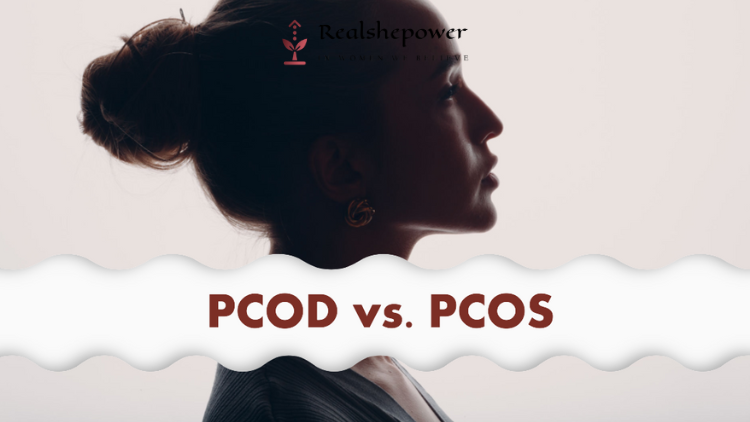PCOD vs PCOS: Understanding the Differences and How to Manage Them


PCOD vs PCOS
Polycystic ovary disease (PCOD) and polycystic ovary syndrome (PCOS) are two conditions that are often used interchangeably, but they are not the same thing. Both conditions are caused by hormonal imbalances, and they can have similar symptoms, but the underlying causes and treatments are different. In this article, we’ll explore the differences between PCOD and PCOS, and discuss some tips for managing these conditions.
Table of Contents
PCOD vs. PCOS: What’s the Difference?
PCOD is a condition that affects the ovaries and is characterized by the growth of small cysts on the ovaries. These cysts can interfere with ovulation and cause irregular periods. PCOD is also associated with insulin resistance, which can lead to weight gain and an increased risk of diabetes. While PCOD can cause infertility, it is not always associated with high levels of androgens (male hormones).
On the other hand, PCOS is a condition that is also characterized by hormonal imbalances, but it is specifically linked to high levels of androgens. Women with PCOS often have irregular periods, acne, and excess hair growth. PCOS can also cause insulin resistance and weight gain, and it is a leading cause of infertility.
| PCOD | PCOS | |
|---|---|---|
| Definition | Growth of small cysts on ovaries | Hormonal imbalance with high androgen levels |
| Symptoms | Irregular periods, insulin resistance, weight gain | Irregular periods, acne, excess hair growth, infertility |
| Hormones | Not always associated with high androgen levels | High androgen levels |
| Diagnosis | Medical history, physical exam, blood tests, ultrasound | Medical history, physical exam, blood tests, ultrasound |
| Treatment | Lifestyle changes, hormonal birth control, metformin | Lifestyle changes, hormonal birth control, metformin |
| Risks | Infertility, diabetes, cardiovascular disease | Infertility, diabetes, cardiovascular disease, endometrial cancer |
Diagnosis and Treatment
Both PCOD and PCOS are diagnosed through a combination of medical history, physical examination, and blood tests. Ultrasound may also be used to confirm the presence of cysts in the ovaries.
Treatment for PCOD and PCOS varies depending on the individual case, but there are some general approaches that can be helpful for managing these conditions. In some cases, lifestyle changes such as diet and exercise can be effective. For example, weight loss can improve insulin resistance and restore regular menstrual cycles.
In other cases, medical treatments may be necessary. Hormonal birth control can help regulate menstrual cycles and reduce the symptoms of PCOD and PCOS. Other medications, such as metformin, may be prescribed to improve insulin resistance.
Conclusion
PCOD and PCOS are two common conditions that can have a significant impact on women’s health. While there are some similarities between these conditions, it is important to understand the differences in order to get an accurate diagnosis and receive the right treatment. If you are experiencing irregular periods, hormonal imbalances, or other symptoms that may be related to PCOD or PCOS, it’s important to speak with your healthcare provider to determine the best course of action.
Remember, lifestyle changes such as diet and exercise can be helpful for managing these conditions, but medical treatments may also be necessary. By working with your healthcare provider and taking a proactive approach to your health, you can successfully manage PCOD and PCOS and enjoy a happy and healthy life.
Knowledge is Power: Understanding Reproductive Health for Empowered Teen Girls

You may have questions about birth control, sexually transmitted diseases (STDs), and other issues related to your body. It is essential to understand that your body is yours, and you have the right to make
PCOD and PCOS: Dietary Habits and Lifestyle Changes to Manage Symptoms

In this article, we’ll provide tips on how to manage PCOD and PCOS through dietary habits and lifestyle changes.
Blast Belly Fat with This Effective Exercise Routine

Belly fat is a common concern for many people, and it’s not just about the way you look. Belly fat can also be a health risk, as it’s associated with an increased risk of heart disease, diabetes, and other
You can now write for RSP Magazine and be a part of the community. Share your stories and opinions with us here.
